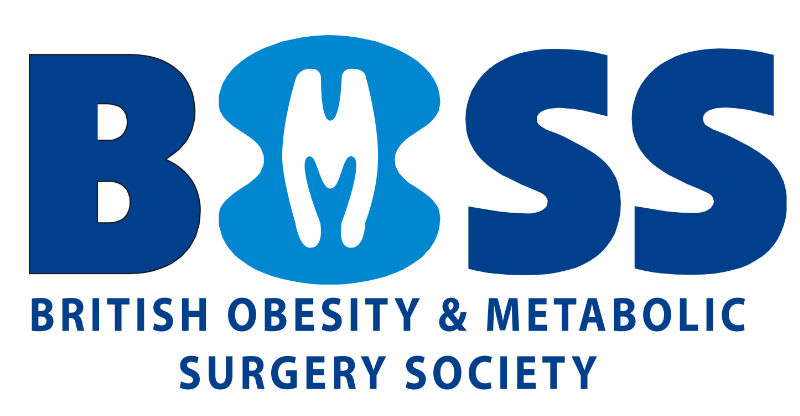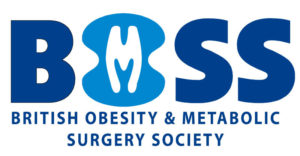Welcome to BOMSS
The UK’s internationally recognised bariatric surgery society providing expert advice to a variety of bodies to inform national policy and commissioning guidance promoting the safe and equitable practice of obesity surgery
BOMSS ASM 2023 – Save The Date!
BOMSS are delighted to advise that the 14th BOMSS Annual Scientific Meeting will be taking place at Hilton Birmingham Metropole, […]
Process for Audits using NBSR Data
On behalf of the NBSR committee, we are pleased to announce a new policy for audits using NBSR data. Audit […]
BOMSS Post-Graduate Trainee Members – Important Membership Renewal Reminder
BOMSS wish to remind those with Post-Graduate Trainee in UK and Ireland membership with BOMSS that a £30 membership fee […]
An open letter from the BOMSS Council of Management
The beginning of September has been a busy time for our political and NHS leaders. Lord Darzi’s report sets out his rapid assessment of the current state of the NHS, with a sobering analysis of the challenges our nation and health services face.
Within Lord Darzi’s report and also the wider media, obesity, rising rates of type 2 diabetes and substantial increases in the prevalence of people living with multiple long-term conditions are all noted. The report also highlights inequalities in access to care and loss of productivity due to treatable and avoidable ill health. Addressing these problems is clearly a complex and long term project. In the meantime, through your expertise and teamwork, you all deliver life changing quality of life and health improvements for those living with severe obesity in the UK.
Weight loss surgery: Patients need clearer warnings of risks from overseas care, say doctors - The BMJ
UK doctors are calling for a national public awareness campaign to inform people of the risks of going overseas for weight loss surgery, including that their GP may not provide routine follow-up care once they return.
BOMSS has called on the government to increase awareness of these risks among the public, as well as what aftercare they can expect from the NHS once they return.
Ahmed Ahmed, BOMSS Secretary, has spoken with The BMJ on this important issue. Please click below to read the full article.
Launch of the BOMSS GP Hub
BOMSS are pleased to announce the launch of the BOMSS GP Hub.
The BOMSS GP Hub is a suite of six documents that have been developed by a multi-disciplinary working group and aim to support bariatric surgery follow-up in primary care:
BOMSS post-bariatric surgery nutritional guidance for GPs,
BOMSS traffic light poster for the management of complications post-bariatric surgery,
BOMSS overview of GP management of patients post-bariatric surgery,
BOMSS pre-consultation questionnaire for patients,
BOMSS GP consultation guide of post-bariatric surgery annual reviews,
BOMSS guidance on medications post-bariatric surgery for GPs.
All these documents can be downloaded as PDFs and are free to use for clinical purposes.
Please share with primary care colleagues to help support patient care (for example, by including the weblink and/or copies in patient letters).
Joint BAAPS/BOMSS statement on surgical tourism - CONSULT A UK SURGEON FIRST
Issued by the British Association of Aesthetic Plastic Surgeons and the British Obesity and Metabolic Surgery Society.
The significant increase in numbers of patients travelling abroad for both aesthetic and bariatric (weight loss) surgery has been linked with consequent serious complications and even deaths. BAAPS and BOMSS, the aesthetic and bariatric UK surgical societies are making this unprecedented joint statement due to our concerns for patient welfare and safety.
Both BAAPS and BOMSS have warned about the risks of surgical tourism. However, due to economic pressures, concerted advertising and ready availability there is a continuous and increasing stream of UK patients who choose to travel abroad for surgery.
As professional societies we are concerned by the number of patients presenting with the complications of surgical procedures performed outside the UK. There is an assumption that the NHS will deal with any issues on return home, and a significant financial cost can be attached to the management of complications. This cost might well be down to the patient to pay, and must be considered in advance.
BAAPS and BOMSS recognise that surgery in the independent sector in the UK is more expensive than in some other countries. The principle reason is that healthcare in England is tightly regulated by the CQC, in Scotland by the HIS and in Wales by HIW. This ensures quality, standards, and ultimately safety are as good as possible. Not all countries have the equivalent to CQC regulation, and not all countries’ standards are at the high level of those in the UK.
Our specific concerns about people travelling overseas for surgery include:
1. Lack of adequate expert pre-operative assessment, discussion and counselling
2. Poor choice of procedure offered and the number of combined procedures offered in one surgical sitting
3. Different procedures being performed to the one the patient expected, or the details of the procedure conducted being unknown
4. Unknown quality and safety of the team providing surgery
5. Risks of long-distance travel immediately following surgery, for example developing a blood clot in the leg or lung (which can be potentially life-threatening)
6. Poor or non-existent access to routine post-operative follow up care, increasing the possibility of outcomes such as weight regain and nutritional deficiencies in bariatric patients and increasing the risks of sub-optimal outcomes and complications in plastic surgery patients.
7. No direct access to expert care if a complication occurs (and most GPs are not trained in the care of patients who have had bariatric or plastic surgery)
Having surgery abroad is certainly less expensive than in the UK, but standards of healthcare regulation overseas often differ from the UK, which means the quality of surgical care can vary significantly. In the event of a problem, clinical and legal redress is much more difficult leaving people exposed and unprotected.
Therefore, both the BAAPS and BOMSS strongly urge caution to anyone considering surgical tourism – what cost is your health? Consult a UK Surgeon first.
Click here to download the statement.
Issued by the British Association of Aesthetic Plastic Surgeons and the British Obesity and Metabolic Surgery Society.
The significant increase in numbers of patients travelling abroad for both aesthetic and bariatric (weight loss) surgery has been linked with consequent serious complications and even deaths. BAAPS and BOMSS, the aesthetic and bariatric UK surgical societies are making this unprecedented joint statement due to our concerns for patient welfare and safety.
Both BAAPS and BOMSS have warned about the risks of surgical tourism. However, due to economic pressures, concerted advertising and ready availability there is a continuous and increasing stream of UK patients who choose to travel abroad for surgery.
As professional societies we are concerned by the number of patients presenting with the complications of surgical procedures performed outside the UK. There is an assumption that the NHS will deal with any issues on return home, and a significant financial cost can be attached to the management of complications. This cost might well be down to the patient to pay, and must be considered in advance.
BAAPS and BOMSS recognise that surgery in the independent sector in the UK is more expensive than in some other countries. The principle reason is that healthcare in England is tightly regulated by the CQC, in Scotland by the HIS and in Wales by HIW. This ensures quality, standards, and ultimately safety are as good as possible. Not all countries have the equivalent to CQC regulation, and not all countries’ standards are at the high level of those in the UK.
Our specific concerns about people travelling overseas for surgery include:
1. Lack of adequate expert pre-operative assessment, discussion and counselling
2. Poor choice of procedure offered and the number of combined procedures offered in one surgical sitting
3. Different procedures being performed to the one the patient expected, or the details of the procedure conducted being unknown
4. Unknown quality and safety of the team providing surgery
5. Risks of long-distance travel immediately following surgery, for example developing a blood clot in the leg or lung (which can be potentially life-threatening)
6. Poor or non-existent access to routine post-operative follow up care, increasing the possibility of outcomes such as weight regain and nutritional deficiencies in bariatric patients and increasing the risks of sub-optimal outcomes and complications in plastic surgery patients.
7. No direct access to expert care if a complication occurs (and most GPs are not trained in the care of patients who have had bariatric or plastic surgery)
Having surgery abroad is certainly less expensive than in the UK, but standards of healthcare regulation overseas often differ from the UK, which means the quality of surgical care can vary significantly. In the event of a problem, clinical and legal redress is much more difficult leaving people exposed and unprotected.
Therefore, both the BAAPS and BOMSS strongly urge caution to anyone considering surgical tourism – what cost is your health? Consult a UK Surgeon first.
Click here to download the statement.
BOMSS Statement on Bariatric Tourism
We understand that accessing bariatric (weight loss) surgery on the NHS can be a frustrating experience and BOMSS is working hard to improve this situation. One consequence of the current lack of NHS provision of this treatment is that people decide to self-fund their care, either in the UK or abroad. BOMSS strongly advises UK residents to be cautious when considering bariatric surgery abroad.
Care in the UK is tightly regulated with all providers regularly monitored and inspected by the Care Quality Commission (CQC). Surgical outcomes are reported on a national bariatric database, UK bariatric surgeons, have completed recognised training and certification, and have full professional insurance so that patients can receive financial compensation in the very unlikely event of serious complications arising from clinical negligence. These processes are designed to ensure high standards of care and to protect patients undergoing surgery.
Full statement found HERE



